Burton "Bud" David Rose (November 19, 1942 – April 24, 2020) was an American nephrologist and the creator of UpToDate, an online medical resource.
Contents
Career
Burton Rose was a clinical professor of medicine at Harvard University. [2] He also held positions at the University of Massachusetts Medical School, Brigham and Women's Hospital, and Beth Israel Deaconess Medical Center. [3] He was the author of Clinical Physiology of Acid-Base and Electrolyte Disorders and Pathophysiology of Renal Disease; and the co-author of Renal Pathophysiology: The Essentials. [2] [4]
In 1987, Dr. Rose initiated a novel program at Brigham and Women's Hospital, the Continuing Education and Referral Service. This included three main components: 1) A free 800-hotline whereby community physicians throughout New England could call for quick answers to questions that came up in general practice; 2) An Advanced Clinical Training program through which community physicians could come to Brigham and Women's for brief (1-3 days) focused training in an area of interest; and 3) A monthly topical newsletter for community physicians, called "Medical Update", that was authored by expert clinician/scientists at Brigham and Women's.
Rose created the first version of UpToDate, in his house in 1992. It was released on floppy disks. In October 2017, more than 1.3 million clinicians in 187 countries have consulted UpToDate's website and mobile apps, with viewings of more than 32 million topics per month. [5]
In 2019, the American Society of Nephrology announced the "Burton D. Rose, MD, Endowed Lectureship". [6]
Death
Rose, who had Alzheimer's disease, died from complications from COVID-19 on April 24, 2020, during the COVID-19 pandemic in Massachusetts. [3]
Related Research Articles
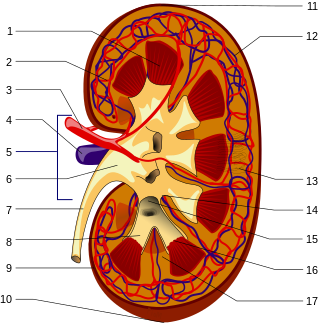
Nephrology is a specialty of adult internal medicine and pediatric medicine that concerns the study of the kidneys, specifically normal kidney function and kidney disease, the preservation of kidney health, and the treatment of kidney disease, from diet and medication to renal replacement therapy. The word "renal" is an adjective meaning "relating to the kidneys", and its roots are French or late Latin. Whereas according to some opinions, "renal" and "nephro" should be replaced with "kidney" in scientific writings such as "kidney medicine" or "kidney replacement therapy", other experts have advocated preserving the use of renal and nephro as appropriate including in "nephrology" and "renal replacement therapy", respectively.

Clinical chemistry is a division in medical laboratory sciences focusing on qualitative tests of important compounds, referred to as analytes or markers, in bodily fluids and tissues using analytical techniques and specialized instruments. This interdisciplinary field includes knowledge from medicine, biology, chemistry, biomedical engineering, informatics, and an applied form of biochemistry.
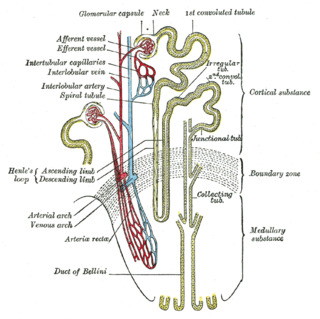
The collecting duct system of the kidney consists of a series of tubules and ducts that physically connect nephrons to a minor calyx or directly to the renal pelvis. The collecting duct system is the last part of nephron and participates in electrolyte and fluid balance through reabsorption and excretion, processes regulated by the hormones aldosterone and vasopressin.

Assessment of kidney function occurs in different ways, using the presence of symptoms and signs, as well as measurements using urine tests, blood tests, and medical imaging.
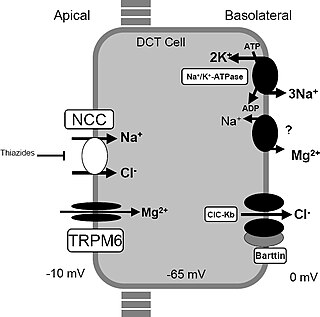
Gitelman syndrome (GS) is an autosomal recessive kidney tubule disorder characterized by low blood levels of potassium and magnesium, decreased excretion of calcium in the urine, and elevated blood pH. It is the most frequent hereditary salt-losing tubulopathy. Gitelman syndrome is caused by disease-causing variants on both alleles of the SLC12A3 gene. The SLC12A3 gene encodes the thiazide-sensitive sodium-chloride cotransporter, which can be found in the distal convoluted tubule of the kidney.

Respiratory alkalosis is a medical condition in which increased respiration elevates the blood pH beyond the normal range (7.35–7.45) with a concurrent reduction in arterial levels of carbon dioxide. This condition is one of the four primary disturbance of acid–base homeostasis.

Renal tubular acidosis (RTA) is a medical condition that involves an accumulation of acid in the body due to a failure of the kidneys to appropriately acidify the urine. In renal physiology, when blood is filtered by the kidney, the filtrate passes through the tubules of the nephron, allowing for exchange of salts, acid equivalents, and other solutes before it drains into the bladder as urine. The metabolic acidosis that results from RTA may be caused either by insufficient secretion of hydrogen ions into the latter portions of the nephron or by failure to reabsorb sufficient bicarbonate ions from the filtrate in the early portion of the nephron. Although a metabolic acidosis also occurs in those with chronic kidney disease, the term RTA is reserved for individuals with poor urinary acidification in otherwise well-functioning kidneys. Several different types of RTA exist, which all have different syndromes and different causes. RTA is usually an incidental finding based on routine blood draws that show abnormal results. Clinically, patients may present with vague symptoms such as dehydration, mental status changes, or delayed growth in adolescents.
Dr. Kamal Badr is a Lebanese-American physician and scientist who has been Professor of Medicine and Chair of the Department of Internal Medicine at the American University of Beirut from July 2000 to late 2006. He then was named Founding Dean of the Lebanese American University’s new medical school, a position he held until September 1, 2010. He returned to the American University of Beirut in October 2010, where he is Associate Dean for Medical Education.
Robert William Schrier was founding editor-in-chief of the magazine Nature Clinical Practice Nephrology. Schrier was formerly Chairman of the Department of Medicine at the University of Colorado School of Medicine for 26 years, and Head of the Division of Renal Diseases and Hypertension for 20 years. At the time of his death, he was Professor Emeritus at the University of Colorado School of Medicine. He died in Potomac, Maryland.

Founded in 1966, the American Society of Nephrology (ASN) is the world's largest professional society devoted to the study of kidney disease. Composed of over 20,000 physicians and scientists, ASN promotes expert patient care, advances medical research, and educates the renal community. ASN also informs policymakers about issues of importance to kidney doctors and their patients.
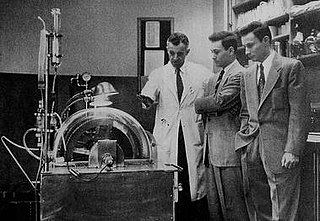
John Putnam Merrill was an American physician and medical researcher. He led the team which performed the world's first successful kidney transplant. He generally credited as the "father of nephrology" or "the founder of nephrology," which is the scientific study of the kidney and its diseases.
Dr. Manuel Martínez Maldonado, MD; MACP, an internist and nephrologist, administrator, educator, poet and author, has authored numerous scientific publications and edited several books. His research interests are the regulation of body fluids and the pathophysiology of blood pressure and its effects on the kidneys. He also focuses on the renin angiotensin system, a hormone system that helps regulate long-term blood pressure and blood volume in the body and which is controlled primarily by the kidneys. His clinical research has included polycycstic kidney disease, renal stones and hypercalcemia. Martinez-Maldonado has occupied numerous positions, including Vice President for Research at Oregon Health and Sciences University (1998-2000), President and Dean of the Ponce School of Medicine (2000–2006). He was the executive vice president for research at the University of Louisville from 2000 to 2009.
Ronald Jonathan Falk, MD, FACP, FASN is the Nan and Hugh Cullman Eminent Professor and Chair of the Department of Medicine at the University of North Carolina-Chapel Hill (UNC). He is a clinical nephrologist and internationally recognized expert in anti-neutrophil cytoplasmic autoantibody (ANCA)-induced vasculitis and autoimmune kidney disease. His career as a translational physician-scientist spans more than three decades. His clinical practice and translational research focus on characterizing the cell, tissue and physiologic changes in the development of specific autoimmune kidney diseases and developing new approaches for studying autoimmunity, inflammation and basic neutrophil/monocyte biology. He was Chief of the UNC Division of Nephrology and Hypertension from 1993-2015. He co-founded the UNC Kidney Center in 2005 and continues as Co-Director. Falk is a Past-President of the American Society of Nephrology (ASN). Since 2015, he has served as Chair of the Department of Medicine at UNC.
Onconephrology is a specialty in nephrology that deals with the study of kidney diseases in cancer patients. A nephrologist who takes care of patients with cancer and kidney disease is called an onconephrologist. This branch of nephrology encompasses nephrotoxicity associated with existing and novel chemotherapeutics, kidney disease as it pertains to stem cell transplant, paraneoplastic kidney disorders, paraproteinemias, electrolyte disorders associated with cancer, and more as discussed below.

Alan Frederick Hofmann was a gastrointestinal physiologist, biochemist and clinician who was notable for his extensive basic, translational and clinical research on bile acids and lipid digestion. From 1977, he was a member of the Division of Gastroenterology at University of California, San Diego. He influenced and mentored a large number of researchers with his ideas, knowledge and support.
Sharon A. Anderson is an American physician, educator, and researcher practicing in Portland, Oregon. She has contributed extensively to the study of the progression of chronic kidney disease. Her research has focused on diabetic nephropathy, polycystic kidney disease and the pathophysiology of the aging kidney. She was the first woman to serve as President of the American Society of Nephrology (ASN). She was the Chief of the Department of Medicine at the Veteran's Affairs Medical Center in Portland and is currently the Chair of the Department of Medicine at Oregon Health and Science University (OHSU). She has been appointed to the National Institutes of Health Council of Councils. Her publications as author or co-author number greater than 150.
Donald Wayne Seldin was an American nephrologist. He worked at University of Texas Southwestern Medical Center and served as chair of the department of medicine for 36 years.
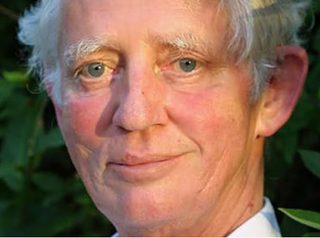
Thomas Martin Barratt was a British paediatrician and professor of paediatric nephrology. Barratt was most notable for developing a specialist service for children with kidney diseases in Britain, bringing peritoneal dialysis, haemodialysis, and later renal transplantation to ever younger children. Barratt was an early advocate for multidisciplinary care and developed a model that was later taken up by many other specialist centres across the world. His research led to a new treatments for many types of childhood kidney diseases., and for research into childhood Nephrotic syndrome and Hemolytic-uremic syndrome.
Jerome Lowenstein is a licensed medical doctor with a specialty in nephrology, medical specialty related to kidneys, in New York, New York. He received his M.D, also known as Doctor of Medicine, from New York University in 1957. He continued to work at New York University, more commonly known as NYU, as a Professor of Medicine in the Division of Nephrology, as Firm Chief in the NYU School of Medicine, as a clinician in several clinical practices in New York, as a researcher, and also as an author. He is also the Senior Nonfiction Editor for the Bellevue Literary Review. He developed a program at NYU for Humanistic Aspects of Medical Education which he directed and was intended for third year involved in clerkship. He is currently retired.
Samira Farouk, MD, MS, FASN is a board-certified transplant nephrologist and Associate Professor of Medicine and Medical Education at Icahn School of Medicine at Mount Sinai (ISMMS). She teaches medical students, residents, and fellows, and also develops and studies innovations in medical education. Her clinical research interests include the pathogenesis of kidney fibrosis in regards to transplant survival and chronic kidney diseases. Farouk is also cofounder of the free mobile-friendly nephrology teaching tool NephSIM, Associate Program Director of the Nephrology Fellowship at ISMMS, and Director of Mentoring and Trainee Engagement of KIDNEYcon.
References
- 1 2 "BURTON DAVID ROSE M.D." Legacy.com . Legacy.com. April 24, 2020. Retrieved April 30, 2020.
- 1 2 "American Society of Nephrology | Awards – 2009". www.asn-online.org. 2009. Retrieved April 26, 2020.
- 1 2 Pollak, Martin; Zeidel, Mark; Steinman, Theodore (April 25, 2020). "Remembering UpToDate creator Burton 'Bud' Rose". Stat . Archived from the original on April 25, 2020. Retrieved April 26, 2020.
- ↑ Rose, Burton David; Post, Theodore (January 12, 2001). Clinical Physiology of Acid-Base and Electrolyte Disorders. McGraw Hill Professional. ISBN 9780071609876 . Retrieved April 30, 2020– via Google Books. ISBN 0071609873
- ↑ "Wolters Kluwer Celebrates the 25th Anniversary of UpToDate with Launch of 25th Specialty, Anesthesiology". wolterskluwer.com. October 5, 2017. Retrieved April 26, 2020.
- ↑ "ASN Establishes Burton D. Rose, MD, Endowed Lectureship" (PDF). asn-online.org. October 16, 2019. Retrieved April 26, 2020.